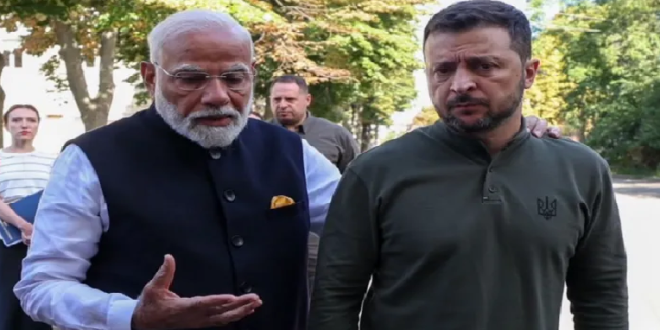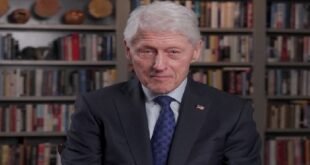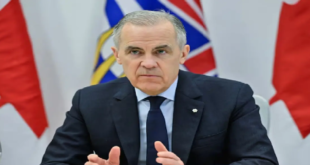24-08-2024
Bureau Report + Agencies
NEW DELHI: Indian Prime Minister Narendra Modi is visiting Ukraine on Friday, just weeks after he met Russian President Vladimir Putin in Moscow.
The visit is significant because Kyiv and some Western capitals had reacted sharply to Modi’s visit to the Russian capital in July.
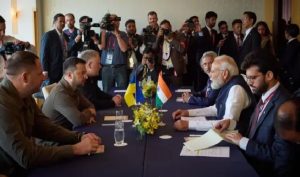 Ukraine President Volodymyr Zelensky was particularly critical, saying he was “disappointed to see the leader of the world’s largest democracy hug the world’s most bloody criminal in Moscow”.
Ukraine President Volodymyr Zelensky was particularly critical, saying he was “disappointed to see the leader of the world’s largest democracy hug the world’s most bloody criminal in Moscow”.
So, is Modi visiting Kyiv to placate Zelensky and other Western leaders?
Not entirely.
It’s not surprising to see India balance its relations between two competing nations or blocs. The country’s famed non-alignment approach to geopolitics has served it well for decades.
This week’s visit – the first by an Indian prime minister to Ukraine is more about signalling that while India will continue to have strong relations with Russia, it will still work closely with the West.
Michael Kugelman, director of the South Asia Institute at the Wilson Centre think-tank in Washington, says the trip will further reassert India’s strategic autonomy.
“India isn’t in the business of placating Western powers, or anyone for that matter. It’s a trip meant to advance Indian interests, by reasserting friendship with Kyiv and conveying its concerns about the continuing war,” he says.
However, the timing of the visit does reflect that Indian diplomats have taken onboard the sharp reactions from the US to Modi’s Moscow visit.
India has refrained from directly criticizing Russia over the war, much to the annoyance of Western powers.
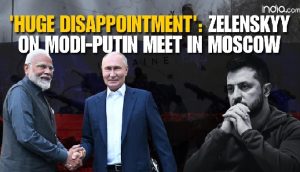 Delhi, however, has often spoken about the importance of respecting territorial integrity and sovereignty of nations. It has continuously pushed for diplomacy and dialogue to end the war. Modi’s Moscow visit in July came hours after Russian bombing killed at least 41 people in Ukraine, including at a children’s hospital in Kyiv, sparking a global outcry.
Delhi, however, has often spoken about the importance of respecting territorial integrity and sovereignty of nations. It has continuously pushed for diplomacy and dialogue to end the war. Modi’s Moscow visit in July came hours after Russian bombing killed at least 41 people in Ukraine, including at a children’s hospital in Kyiv, sparking a global outcry.
The Indian PM said the death of children was painful and terrifying but stopped short of blaming Russia. Modi is not likely to deviate from this stance during his visit to Kyiv. The US and other Western nations have grown to accept Delhi’s stand, given India’s time-tested relationship with Moscow and its reliance on Russian military equipment.
India, the world’s largest importer of arms, has diversified its defence import portfolio and also grown domestic manufacturing in recent years but it still buys more than 50% of its defence equipment from Russia.
India has also increased its oil imports from Russia, taking advantage of cheaper prices offered by Moscow, Russia was the top oil supplier to India last year.
The US and its allies have often implored India to take a clearer stand on the war but they have also refrained from applying harsh sanctions or pressure.
The West also sees India as a counterbalance to China and doesn’t want to upset that dynamic. India, now the fifth largest economy in the world, is also a growing market for business. Kugelman says the West will welcome the visit and see it as Delhi’s willingness to engage with all sides.
“Modi has a strong incentive to signal that it’s not leaning so close to Moscow that there’s nothing to salvage with Kyiv,” he says. This is important because India wants to keep growing its relations with the West, particularly with the US, and wouldn’t want to upset the momentum. Eric Garcetti, the US ambassador to India, recently said the relationship should not be “taken for granted”.
 Pressmediaofindia
Pressmediaofindia
